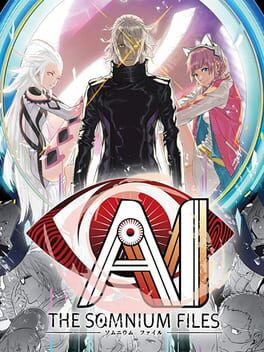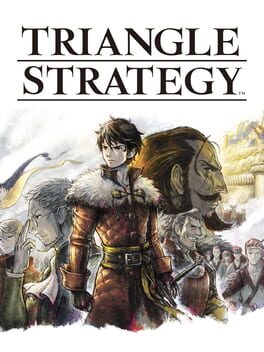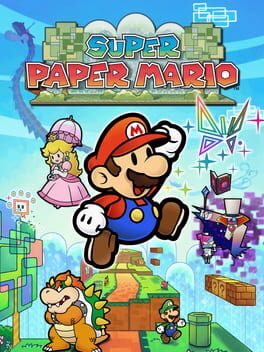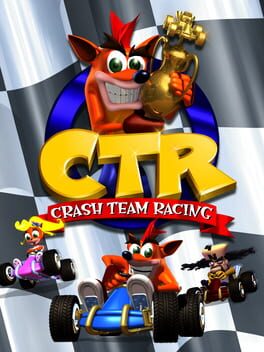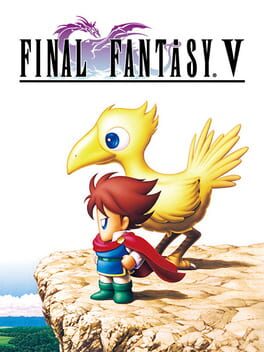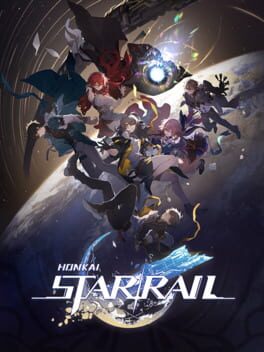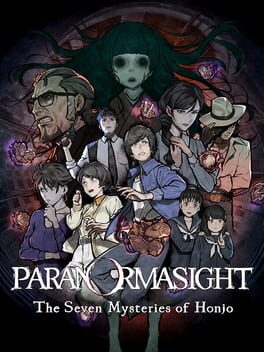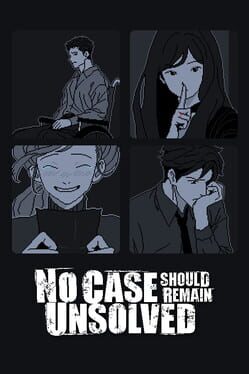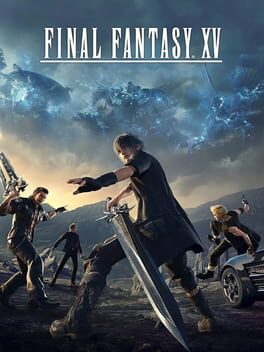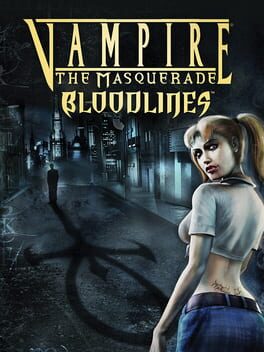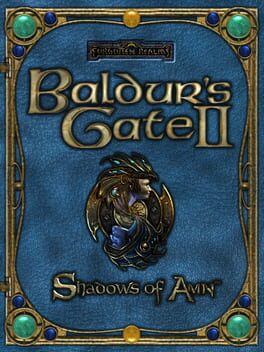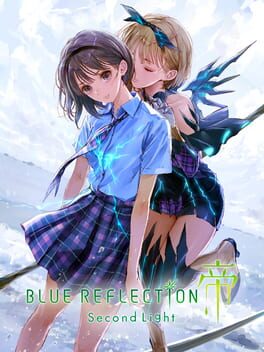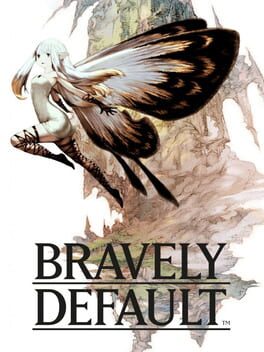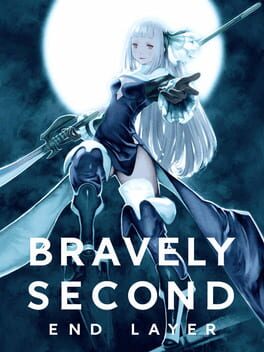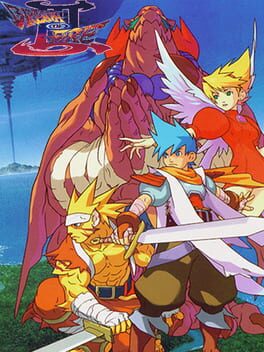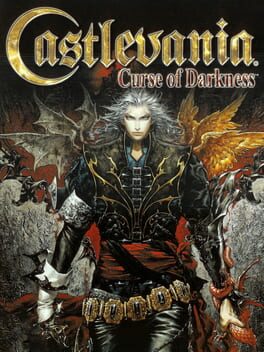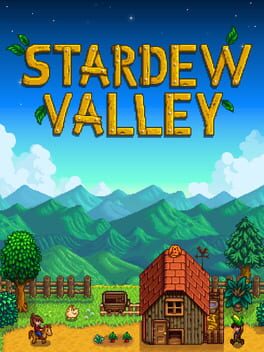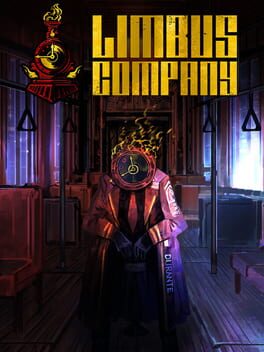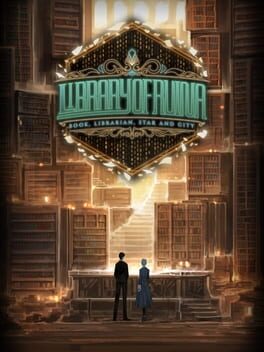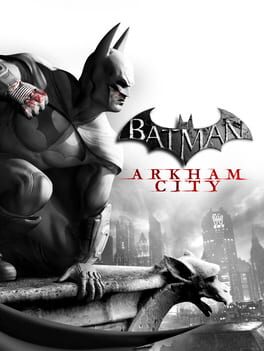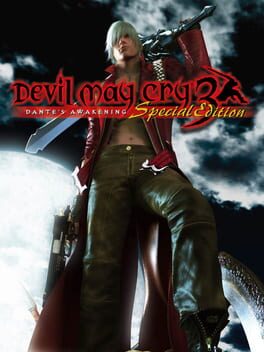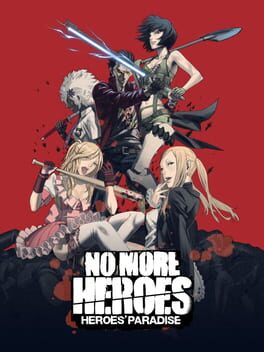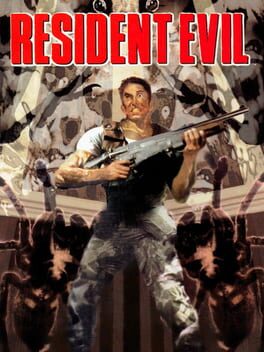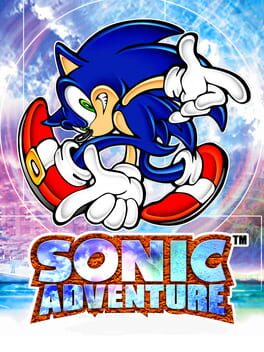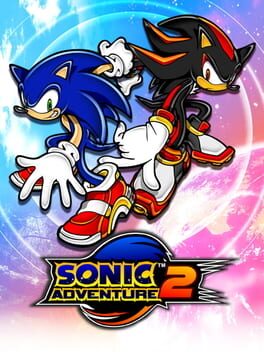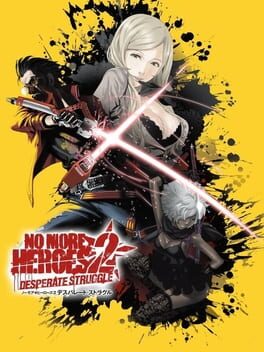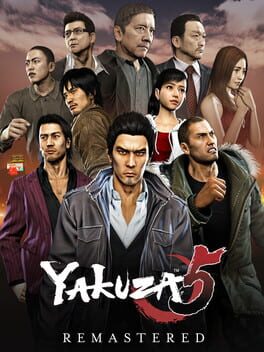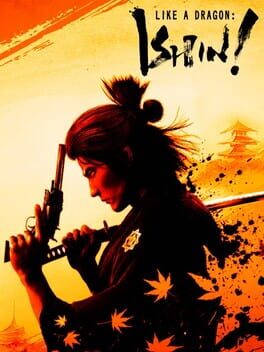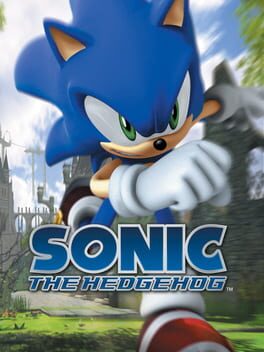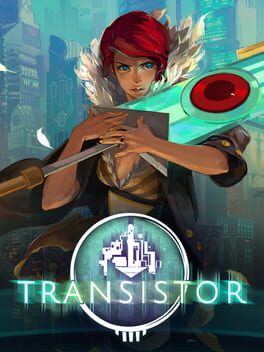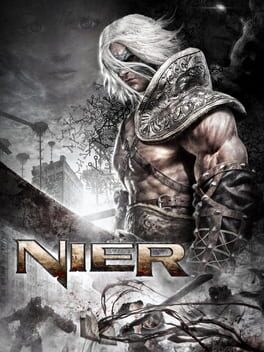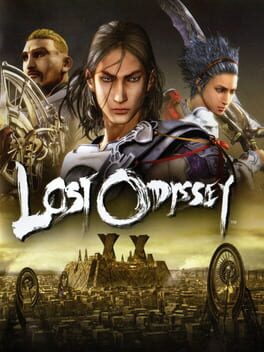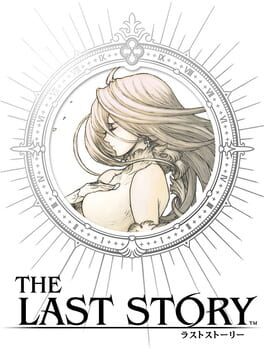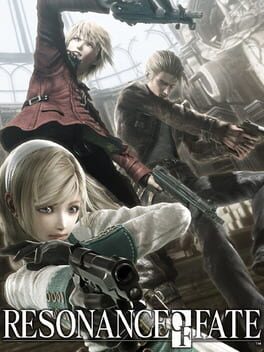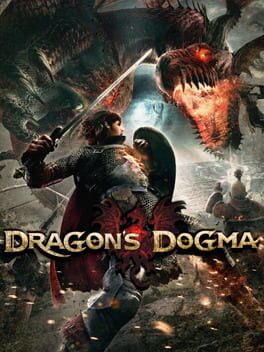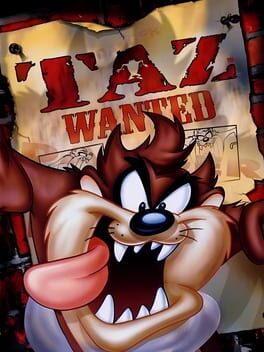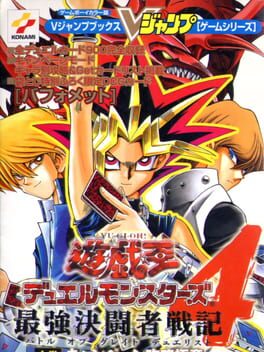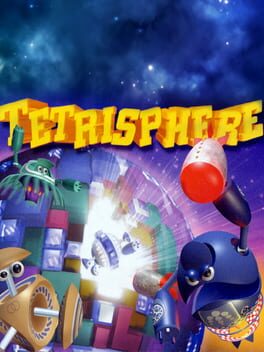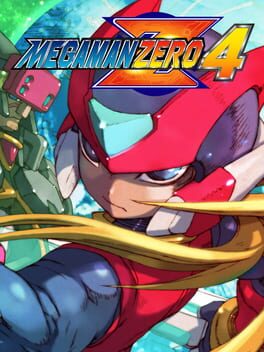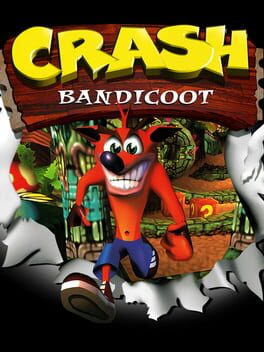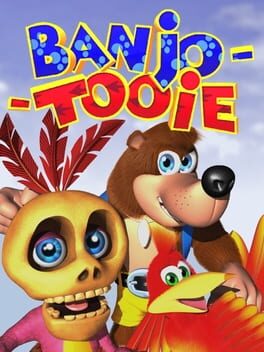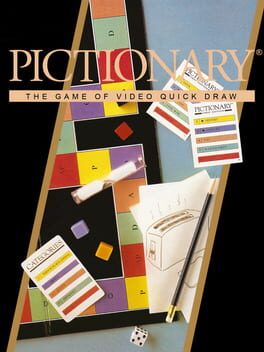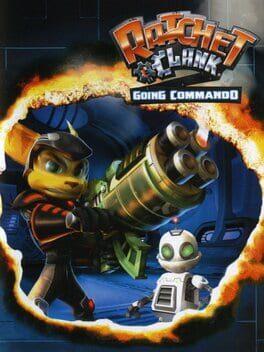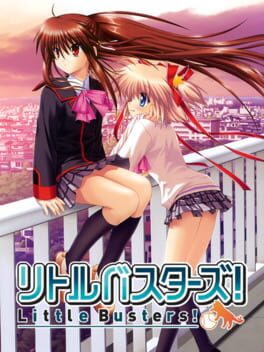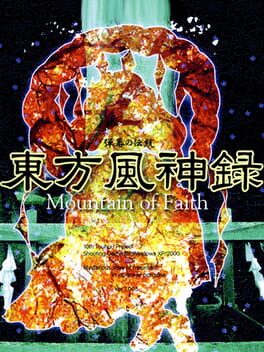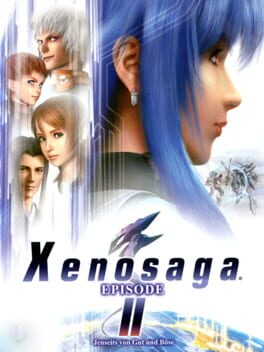Yata777
86 reviews liked by Yata777
Triangle Strategy
2022
i feel like i would ramble on for ages if i started to write paragraphs of text for this game, so i'll go with a List Format This Time.
so here are the top [however many things i end up listing] reasons why this game felt laser-focused to appeal to me:
- a realm-spanning, grounded narrative with actual honest-to-god focus on geopolitics, tough choices and tastefully done magical and fantastical elements, with zero late-game surprise demon king shit to ruin it
- a big, well-rounded cast of characters that not only have interesting and fun personal stories unto themselves, but whose ideals are well examined through the game, and who work as effective lens in interrogating, contrasting and comparing the mechanisms of the various societal systems of the three states of norzelia
- dialogue and character writing that hits a very good balance of dry and serious, and human and humorous, with very well done economical script. just a bit more of joe abercrombie-like sassiness would not have been amiss, but overall very good and fitting for the game
- tactically rigorous gameplay design that moves the focus significantly from out-of-battle preparation and character building to in-battle decision making, which makes the fights themselves feel much more balanced and fair and, most of all, FUN
-- as a bit of a sidenote, i must say that i've always looooved sprawling and involved character progression systems where you can break the game wide open with some good planning and execution, but i've also come to realize that i like them specifically in crpgs and your more standard jrpgs with quick battles and lots of trash mobs to sic your busted ass party at, with trpgs i massively prefer the more chess-like approach that tristrat has
- combat system that gives you all the information you would ever need to plan out your tactics, with basically no bullshit surprises. again, kinda like chess!
- the overall progression philosophy: you're always making at least some in-game progression, even when you face complete defeat, and you never LOSE shit, there's no character permadeath or anything of the sort. in truth the retained experience and kudos from lost fights didn't make a very big impact on the pacing of the game for me (because there were only a few battles i ended up losing once or twice before i emerged victorious), but the psychological effect of knowing you'll always progress in some ways even if you fuck up royally cannot be understated for me--i take more risks, i try out more varied strategies, i generally poke the systems more and as a result, tend to have a lot more fun with the game. with a harsher save/checkpoint system, i tend to play much more conservatively, which always has a negative effect on my enjoyment.
- if it wasn't obvious from the above point, i've never clicked with games that derive a lot of their difficulty or challenge from long-term attrition of resources, so let me just say that i fucking LOVE the tp system. the item system being your standard fare was a good balancing weight for the tp system (though, again, i supremely appreciated the fact that you get used items back if you lose a fight)
- the 3d diorama presentation of the exploration and combat scenarios was just absolutely adorable
all that said, there were certainly a few things i was hoping to see. MORE LISTS!
- a bit more variety across the board would have been appreciated. a few more enemy types and some optional (hard) bonus objectives per fight would have gone a loong way for me. right now the 35 hours i spent with the game feels just right, as much as i'd like to know how the golden route goes, i don't think starting ng+ right away is a good idea. maybe in a year or two, though.
- almost all of the positive status effects feel bizarrely weak compared to the negative ones. proccing immobility or paralysis in particular on a key enemy unit remained incredibly exhilarating all the way to the end, and i really wish positive effects were as impactful.
- some of the scales of justice decisions could have been harder. the setup of every option starting out with equal amount of supporters avoids the potential issue of the game accidentally implying some options are better or more desirable than the others, but i got my will in every one and it felt just a tad too easy.
- while i adored the presentation overall, i'm not a big fan of the super contrasty colors of the 2d-hd games. you definitely get used to it, though, and playing the pc version with higher res and framerate than on the switch made the graphics more palatable for me.
- the material and character skill "tree" systems felt a bit tacked on, the vast majority of upgrades you could get seemed pretty inconsequential. would have preferred less materials overall (and the game being stingier with them) and tighter skill trees with just the skills that make a genuine difference--you get the tiny stat boosts from level ups.
---
i have never played a game that made me feel more like i was playing an epic fantasy novel trilogy. it is in many ways the trpg genre absolutely perfected for my particular tastes. it's not the very best in every single thing--when i want to enjoy some of the most colorful dialogue of the genre i'll boot up fft or to:luct, and when i want a different kind of satisfaction found in building gamebreaking characters i'll boot up troubleshooter (or, tbf, fft or to:luct lol), etc.--but as a whole package, it is one of the best trpgs i've ever played and likely my overall favorite. just an incredible game through and through and god do i hope we get a triangle strategy 2 some day, that takes place in the same world but maybe 100 years in the future--the ending i got certainly made it clear norzelia is just entering a new era of true innovation, so there's a lot of potential there.
four and a half difficult multifaceted realm-changing decisions forced to be made out of sheer necessity out of five
so here are the top [however many things i end up listing] reasons why this game felt laser-focused to appeal to me:
- a realm-spanning, grounded narrative with actual honest-to-god focus on geopolitics, tough choices and tastefully done magical and fantastical elements, with zero late-game surprise demon king shit to ruin it
- a big, well-rounded cast of characters that not only have interesting and fun personal stories unto themselves, but whose ideals are well examined through the game, and who work as effective lens in interrogating, contrasting and comparing the mechanisms of the various societal systems of the three states of norzelia
- dialogue and character writing that hits a very good balance of dry and serious, and human and humorous, with very well done economical script. just a bit more of joe abercrombie-like sassiness would not have been amiss, but overall very good and fitting for the game
- tactically rigorous gameplay design that moves the focus significantly from out-of-battle preparation and character building to in-battle decision making, which makes the fights themselves feel much more balanced and fair and, most of all, FUN
-- as a bit of a sidenote, i must say that i've always looooved sprawling and involved character progression systems where you can break the game wide open with some good planning and execution, but i've also come to realize that i like them specifically in crpgs and your more standard jrpgs with quick battles and lots of trash mobs to sic your busted ass party at, with trpgs i massively prefer the more chess-like approach that tristrat has
- combat system that gives you all the information you would ever need to plan out your tactics, with basically no bullshit surprises. again, kinda like chess!
- the overall progression philosophy: you're always making at least some in-game progression, even when you face complete defeat, and you never LOSE shit, there's no character permadeath or anything of the sort. in truth the retained experience and kudos from lost fights didn't make a very big impact on the pacing of the game for me (because there were only a few battles i ended up losing once or twice before i emerged victorious), but the psychological effect of knowing you'll always progress in some ways even if you fuck up royally cannot be understated for me--i take more risks, i try out more varied strategies, i generally poke the systems more and as a result, tend to have a lot more fun with the game. with a harsher save/checkpoint system, i tend to play much more conservatively, which always has a negative effect on my enjoyment.
- if it wasn't obvious from the above point, i've never clicked with games that derive a lot of their difficulty or challenge from long-term attrition of resources, so let me just say that i fucking LOVE the tp system. the item system being your standard fare was a good balancing weight for the tp system (though, again, i supremely appreciated the fact that you get used items back if you lose a fight)
- the 3d diorama presentation of the exploration and combat scenarios was just absolutely adorable
all that said, there were certainly a few things i was hoping to see. MORE LISTS!
- a bit more variety across the board would have been appreciated. a few more enemy types and some optional (hard) bonus objectives per fight would have gone a loong way for me. right now the 35 hours i spent with the game feels just right, as much as i'd like to know how the golden route goes, i don't think starting ng+ right away is a good idea. maybe in a year or two, though.
- almost all of the positive status effects feel bizarrely weak compared to the negative ones. proccing immobility or paralysis in particular on a key enemy unit remained incredibly exhilarating all the way to the end, and i really wish positive effects were as impactful.
- some of the scales of justice decisions could have been harder. the setup of every option starting out with equal amount of supporters avoids the potential issue of the game accidentally implying some options are better or more desirable than the others, but i got my will in every one and it felt just a tad too easy.
- while i adored the presentation overall, i'm not a big fan of the super contrasty colors of the 2d-hd games. you definitely get used to it, though, and playing the pc version with higher res and framerate than on the switch made the graphics more palatable for me.
- the material and character skill "tree" systems felt a bit tacked on, the vast majority of upgrades you could get seemed pretty inconsequential. would have preferred less materials overall (and the game being stingier with them) and tighter skill trees with just the skills that make a genuine difference--you get the tiny stat boosts from level ups.
---
i have never played a game that made me feel more like i was playing an epic fantasy novel trilogy. it is in many ways the trpg genre absolutely perfected for my particular tastes. it's not the very best in every single thing--when i want to enjoy some of the most colorful dialogue of the genre i'll boot up fft or to:luct, and when i want a different kind of satisfaction found in building gamebreaking characters i'll boot up troubleshooter (or, tbf, fft or to:luct lol), etc.--but as a whole package, it is one of the best trpgs i've ever played and likely my overall favorite. just an incredible game through and through and god do i hope we get a triangle strategy 2 some day, that takes place in the same world but maybe 100 years in the future--the ending i got certainly made it clear norzelia is just entering a new era of true innovation, so there's a lot of potential there.
four and a half difficult multifaceted realm-changing decisions forced to be made out of sheer necessity out of five
Persona 3 Reload
2024
persona 3 was a game with identity, intent, purpose, intentionality, heart, and, most importantly, creativity. i don't enjoy the lot i've been cast in life where i have to play bad versions of persona 3 and say why they're bad, whether it be the answer, portable, or this. reload is not just a bad remake of persona 3, it is a bad game that tells an interesting story in a ho-hum and pedestrian way. it takes so many narrative risks and choices from the original presentation and either waters them down or overly explains them to make sure the lowest common denominator doesn't have to interpret art. even divorced from its source material, this game fails to create a gameplay experience worth investing time in. as a remake, it fails to capture what persona 3 meant. as a JRPG, it is a dull affair with little challenge or complexity. persona 3 reload fails to be worth the effort it takes to play it.
the design doc of persona 3 reload had a very clear goal: leave no one behind, whether it be in story or gameplay. this results in story cutscenes being more explicit and less interpretive (compare the opening FMV with yukari) and gameplay that refuses to obstruct the player in meaningful ways. to be more specific, reload sacrifices any need for the player to become competent with its systems to make sure that anyone can beat this game. theurgy makes the game brainless and poisons basically every boss fight (ken can get a theurgy skill a little over halfway through the game that casts mediarahan + samarecarm + tetrakarn + makarakarn on the entire party). resource management is embarrassingly easy to trivialize (yukari can cast media for literally 1 (one) SP; there is a veritable buffet of SP items that you can trip over in daily life for little to no investment; theurgy overall negates the importance of SP and running out of SP is not the death knell it could be in orginal). social links as a whole are extremely easy to manage both due to point requirements being lower to accommodate for needing to spend more days on new content like linked episodes. hell, remember persona fusion? now it's been greatly dumbed down such that even triangle fusion isn't available anymore. this game is a concession that persona 3 was too ambitious and needed to be toned down. this is a remake that asserts that persona 3 did too much and tries to do less instead.
i'm not even beating the dead horse that is my opinion on party control because there's so many more issues to address. on basically every level, this game has either simplified or deescalated the complexity of its mechanics to accommodate a mainstream audience. i don't think there's inherently anything wrong with making persona 3's systems more accessible, but i think these capitulations go overboard and rob the game of compelling gameplay moments. there are no bosses in the game that truly force me to approach a challenge in a new way or think outside the box in the way that bosses like change relic did. every boss in this game is made longer to accommodate for theurgy damage values without any sort of intelligent design to make the fights feel more exciting for that length of time. boss fights are longer and easier because it's more cinematic to see mitsuru skate around and use her theurgy instead of letting the player use their own competency-based skills and strategy to end the fight. i am not the person who's going to cry that atlus sold out or whatever, but i am the person who's going to tell you that persona 3 reload feels like an undercooked experience because it consistently refuses to ask anything of the player. this game is easy, this game is simple, and this game is uninteresting.
above all else, this game begs one question: who on earth is telling atlus/sega that persona games need to be longer and have more content? persona 3 was a game that had a slowburn start that reload now turns into a bloated nightmare. everything takes so much longer in reload and everything feels more belabored, so i can't blame anyone for getting burnt out or even fucked off from this game's plot by the time things start picking up steam. on top of this, a lot of the new slice of life content wastes so much of the player's time. why do we need multiple scenes dedicated to kenji's performance on job day? i remember when saying that persona 3 was 70 hours felt like i was talking about this gargantuan piece of art. meanwhile, in reload, i hit 70 hours somewhere between september and november. these games do not need to be this long, and it actively ruins the experience to do so. persona 5 being a triple digit hour experience was a bad thing, not something to aspire to.
it's hard to not be at least a little offended because, whether or not P Studio intended it, they have basically hollowed out what made persona 3 so unique, so special. reload looks drab and unimpressive in UE4, and so much of the moody visuals get lost in the graphical fidelity. iwatodai dorm feels too bright, and then when january rolls around, they make the color scheme so muted that it is genuinely comedic. and there's just some really baffling and ugly visual decisions they made, like how everyone in club escapade stands motionlessly in pose. meanwhile, lotus juice has his fingerprints all over the OST in a way that just doesn't work ("mindin' my biz, so mind your own biz"). persona 3 was more than just a game with impressive systems that engaged the player, it was also a piece of art that had an aesthetic that gets lost here. this game feels completely identity-less when compared to the original because the original was both a deconstruction and a hybrid of genres. in many ways, reload doesn't just fail to live up to that artistic intent, it outright doesn't seem to know it was even there in the first place.
and i get it, as a fan of persona 3, my opinion has a giant asterisk at the end of it. why listen to a star wars fan tell you about why phantom menace is the worst movie ever? i will own up and openly admit i expected this game to be bad and had greatly wanted it to not exist. i had a feeling atlus would fuck it up somehow. i don't like being right about that. at the same time, i think there are missteps here that would stand out regardless of familiarity with the source material. yukari's edginess is completely deleted from her character here and she now just sounds and acts like chie on vyvanse rather than a girl with abandonment issues and trauma. fuuka got turned from "weird girl who serves as the empathetic core of the cast" to "girl who could have a thrilling conversation about spoiled milk". and reload isn't the first time akihiko's been sanded down to "protein fanatic who trains a lot", but it's probably the most offensive here. wouldn't it be really fucking funny if, the whole time you were studying with him, akihiko was doing something wacky like squatting above his chair instead of sitting normally?
these characters have been reinterpreted so much that they've lost their core identity that was integral to the plot of persona 3. i don't get the feeling that i'm seeing akihiko or mitsuru, i instead sense that i'm getting how someone interprets them after nearly 2 decades of fandom and spinoff content. yukari still has those "mean" lines but they lack any emotional root, so they come off as nonsense mood swings rather than a scared girl lashing out. and i'll just say it, karen strassman clears the fuck out of dawn bennett when you compare the final aigis monologues (fwiw, in both these instances, i blame the direction, not the VAs). these characters have been done better and it's really jarring that reload tries to flatten them rather than give them more dimensionality.
there's room to broadly interpret these characters, but constantly trying to make a self-serious character like akihiko the butt of a joke that he's in on speaks to how much he's being mischaracterized here. when akihiko was in a comedic scene, it was because he was the straight man, not because he was a this big goofball constantly playing to the crowd. these characters don't feel like themselves in a profound way, and i'd have to wonder how much that comes across to anyone who hasn't played original. does akihiko just seem like a wildly contradictory character to new players? truthfully, i have no idea if any of these people would've resonated with me had this been my first exposure to them.
i don't hate what all of reload's new content wrt characterization, and i honestly really liked some of the stuff they added for shinjiro and ken. but there's just as much that is unnecessary and outright bad. when we said they wanted more backstory on strega, we didn't mean that we wanted you to turn takaya into another akechi. if you're going to remake persona 3, why even bother if you're going to do such a disservice to its characters and setting? sure, you made some of the UI stuff look neater and more Persona 5-y, but what does that meaningfully add to the experience? when i saw the trailer for reload, i immediately asked myself "what does the water motif have to do with persona 3? why is the main character sinking into water? what are they going to do with that?" and it turns out they just wanted a cool main menu animation and nothing else. i want to say that P Studio was just misguided, but some of this content is so actively bad that it makes me wonder if any of them even liked persona 3. so much of this feels like it's trying to fix something that isn't broken, like it's an apology for the source material. this isn't a persona 3 remake for people who liked persona 3. but, then again, who else was it supposed to be for if not people who wanted another persona 5? persona 5 is the new cash cow and my dread for this being a P5ified version of persona 3 was well-founded.
i kept trying to go "how would i feel about this game if it wasn't a remake of a game i love?" and that's an impossible question for me to answer. i can never know because i will never play this with the eyes and ears of someone who didn't play the original. again, as much as i've come to detest this game, i don't have it in my heart to give this a lower score, mostly out of pity, but also out of overcorrecting my harsh opinion as a fan of the original. still, i think many of reload's failings come from a place of trying to simultaneously be a remake and game for everyone. i don't think it's wrong for games to put off people. in fact, the best games often aren't for everyone because they can't be. P Studio emphasized making a game that was so mainstreamed and accessible that it would never present any obstacle or mechanic that could alienate players at the cost of making a game that players could actually be engaged with. i can't think of a broader way you could miss the mark with a persona 3 remake.
the design doc of persona 3 reload had a very clear goal: leave no one behind, whether it be in story or gameplay. this results in story cutscenes being more explicit and less interpretive (compare the opening FMV with yukari) and gameplay that refuses to obstruct the player in meaningful ways. to be more specific, reload sacrifices any need for the player to become competent with its systems to make sure that anyone can beat this game. theurgy makes the game brainless and poisons basically every boss fight (ken can get a theurgy skill a little over halfway through the game that casts mediarahan + samarecarm + tetrakarn + makarakarn on the entire party). resource management is embarrassingly easy to trivialize (yukari can cast media for literally 1 (one) SP; there is a veritable buffet of SP items that you can trip over in daily life for little to no investment; theurgy overall negates the importance of SP and running out of SP is not the death knell it could be in orginal). social links as a whole are extremely easy to manage both due to point requirements being lower to accommodate for needing to spend more days on new content like linked episodes. hell, remember persona fusion? now it's been greatly dumbed down such that even triangle fusion isn't available anymore. this game is a concession that persona 3 was too ambitious and needed to be toned down. this is a remake that asserts that persona 3 did too much and tries to do less instead.
i'm not even beating the dead horse that is my opinion on party control because there's so many more issues to address. on basically every level, this game has either simplified or deescalated the complexity of its mechanics to accommodate a mainstream audience. i don't think there's inherently anything wrong with making persona 3's systems more accessible, but i think these capitulations go overboard and rob the game of compelling gameplay moments. there are no bosses in the game that truly force me to approach a challenge in a new way or think outside the box in the way that bosses like change relic did. every boss in this game is made longer to accommodate for theurgy damage values without any sort of intelligent design to make the fights feel more exciting for that length of time. boss fights are longer and easier because it's more cinematic to see mitsuru skate around and use her theurgy instead of letting the player use their own competency-based skills and strategy to end the fight. i am not the person who's going to cry that atlus sold out or whatever, but i am the person who's going to tell you that persona 3 reload feels like an undercooked experience because it consistently refuses to ask anything of the player. this game is easy, this game is simple, and this game is uninteresting.
above all else, this game begs one question: who on earth is telling atlus/sega that persona games need to be longer and have more content? persona 3 was a game that had a slowburn start that reload now turns into a bloated nightmare. everything takes so much longer in reload and everything feels more belabored, so i can't blame anyone for getting burnt out or even fucked off from this game's plot by the time things start picking up steam. on top of this, a lot of the new slice of life content wastes so much of the player's time. why do we need multiple scenes dedicated to kenji's performance on job day? i remember when saying that persona 3 was 70 hours felt like i was talking about this gargantuan piece of art. meanwhile, in reload, i hit 70 hours somewhere between september and november. these games do not need to be this long, and it actively ruins the experience to do so. persona 5 being a triple digit hour experience was a bad thing, not something to aspire to.
it's hard to not be at least a little offended because, whether or not P Studio intended it, they have basically hollowed out what made persona 3 so unique, so special. reload looks drab and unimpressive in UE4, and so much of the moody visuals get lost in the graphical fidelity. iwatodai dorm feels too bright, and then when january rolls around, they make the color scheme so muted that it is genuinely comedic. and there's just some really baffling and ugly visual decisions they made, like how everyone in club escapade stands motionlessly in pose. meanwhile, lotus juice has his fingerprints all over the OST in a way that just doesn't work ("mindin' my biz, so mind your own biz"). persona 3 was more than just a game with impressive systems that engaged the player, it was also a piece of art that had an aesthetic that gets lost here. this game feels completely identity-less when compared to the original because the original was both a deconstruction and a hybrid of genres. in many ways, reload doesn't just fail to live up to that artistic intent, it outright doesn't seem to know it was even there in the first place.
and i get it, as a fan of persona 3, my opinion has a giant asterisk at the end of it. why listen to a star wars fan tell you about why phantom menace is the worst movie ever? i will own up and openly admit i expected this game to be bad and had greatly wanted it to not exist. i had a feeling atlus would fuck it up somehow. i don't like being right about that. at the same time, i think there are missteps here that would stand out regardless of familiarity with the source material. yukari's edginess is completely deleted from her character here and she now just sounds and acts like chie on vyvanse rather than a girl with abandonment issues and trauma. fuuka got turned from "weird girl who serves as the empathetic core of the cast" to "girl who could have a thrilling conversation about spoiled milk". and reload isn't the first time akihiko's been sanded down to "protein fanatic who trains a lot", but it's probably the most offensive here. wouldn't it be really fucking funny if, the whole time you were studying with him, akihiko was doing something wacky like squatting above his chair instead of sitting normally?
these characters have been reinterpreted so much that they've lost their core identity that was integral to the plot of persona 3. i don't get the feeling that i'm seeing akihiko or mitsuru, i instead sense that i'm getting how someone interprets them after nearly 2 decades of fandom and spinoff content. yukari still has those "mean" lines but they lack any emotional root, so they come off as nonsense mood swings rather than a scared girl lashing out. and i'll just say it, karen strassman clears the fuck out of dawn bennett when you compare the final aigis monologues (fwiw, in both these instances, i blame the direction, not the VAs). these characters have been done better and it's really jarring that reload tries to flatten them rather than give them more dimensionality.
there's room to broadly interpret these characters, but constantly trying to make a self-serious character like akihiko the butt of a joke that he's in on speaks to how much he's being mischaracterized here. when akihiko was in a comedic scene, it was because he was the straight man, not because he was a this big goofball constantly playing to the crowd. these characters don't feel like themselves in a profound way, and i'd have to wonder how much that comes across to anyone who hasn't played original. does akihiko just seem like a wildly contradictory character to new players? truthfully, i have no idea if any of these people would've resonated with me had this been my first exposure to them.
i don't hate what all of reload's new content wrt characterization, and i honestly really liked some of the stuff they added for shinjiro and ken. but there's just as much that is unnecessary and outright bad. when we said they wanted more backstory on strega, we didn't mean that we wanted you to turn takaya into another akechi. if you're going to remake persona 3, why even bother if you're going to do such a disservice to its characters and setting? sure, you made some of the UI stuff look neater and more Persona 5-y, but what does that meaningfully add to the experience? when i saw the trailer for reload, i immediately asked myself "what does the water motif have to do with persona 3? why is the main character sinking into water? what are they going to do with that?" and it turns out they just wanted a cool main menu animation and nothing else. i want to say that P Studio was just misguided, but some of this content is so actively bad that it makes me wonder if any of them even liked persona 3. so much of this feels like it's trying to fix something that isn't broken, like it's an apology for the source material. this isn't a persona 3 remake for people who liked persona 3. but, then again, who else was it supposed to be for if not people who wanted another persona 5? persona 5 is the new cash cow and my dread for this being a P5ified version of persona 3 was well-founded.
i kept trying to go "how would i feel about this game if it wasn't a remake of a game i love?" and that's an impossible question for me to answer. i can never know because i will never play this with the eyes and ears of someone who didn't play the original. again, as much as i've come to detest this game, i don't have it in my heart to give this a lower score, mostly out of pity, but also out of overcorrecting my harsh opinion as a fan of the original. still, i think many of reload's failings come from a place of trying to simultaneously be a remake and game for everyone. i don't think it's wrong for games to put off people. in fact, the best games often aren't for everyone because they can't be. P Studio emphasized making a game that was so mainstreamed and accessible that it would never present any obstacle or mechanic that could alienate players at the cost of making a game that players could actually be engaged with. i can't think of a broader way you could miss the mark with a persona 3 remake.
Super Paper Mario
2007
I have quite the funny history with this game, because when it originally released, I loathed it, as someone whose favorite games were the first two Paper Mario games. I didn’t want to play it and would always complain about it, even though I was just a young wee lad. Little did I know what would happen to franchise after this game... Anyway, after a year or two with a Wii in my possession, I decided to finally give it a shot and I... kinda liked it? Didn’t find it anything special, but I didn’t hate it either. That was around 2011, and since then I had never replayed it, that is until this year, when I felt this urge of finally replaying this game.
The biggest point of contention for most people is the combat. The idea is fun in concept, a platformer with RPG elements. It's satisfying to jump around dealing numbered damage to everything in your path. The most brilliant thing about it might be how they transformed the usually pointless score tally into the level up system, because defeating enemies gives you points that add up to your score, which makes you level up by increasing your HP or attack power once you reach a certain score threshold. You can earn more points by chaining bounces on several enemies and pulling off Stylish moves by shaking the Wii Remote, which can be hard but adds to the satisfaction of this battle system.
However, everything is ABSURDLY easy. You jump a few times on an enemy and BAM, they're gone. This even applies to the boss fights, who can be cheesed in countless ways and offer no real challenge, EVEN THE FINAL BOSS! The boss fights rarely ever try something interesting, none of them incorporate the 3D switching mechanic into their fights and most of them don't even require you to use any of the partner abilities, and the ones that do boil down to simply spamming a single move. It's the definition of mindless, there is no need to create a strategy for any encounters, other than bringing healing items.
So half of the gameplay loop is the combat and the other half is exploring the areas and solving puzzles to progress, mainly using the biggest selling point of the game: the ability to switch the perspective from 2D to 3D. It's cool. It's really cool. Even now as an adult I still can't grasp how that even works, can't wrap my head around what kind of programming witchcraft the devs had to make for that to function.
But despite being fun to see the world through that new perspective, that mechanic is the solution to 90% of the game’s puzzles and roadblocks. You flip and find the right path or the required macguffin. Since the game is so over-reliant on that mechanic, you're not incentivized to use Peach, Bowser, or Luigi frequently since they don't have the ability to flip. If you like using them, too bad, because you'll have to keep constantly switching over to Mario. The partners’ abilities are also heavily underutilized, usually only required for the chapters they are found on. Sometimes when the game is feeling TRULY lazy it simply requires you to point the Wii Remote to the screen to find a hidden door. Not rewarding in the slightest.
Now something people often praise regarding this game is the artstyle, and it is undoubtedly one of the most unique Mario games when it comes to that. Everything is geometrical and abstract, be it the levels or the characters, all formed by angular lines and varied shapes. It's an aesthetic that gives this game its own identity, something that became increasingly rare in the Mario series in the years following the release of this game. It is pretty charming and I commend it for trying something completely unconventional for the series, but I'd be lying if I said I love this visual style.
Again, while it's great that they weren't restrained by what's considered conventional by Mario standards, I'd say this game goes a bit TOO far in that regard, especially the character designs. Most of the original characters don't feel like they fit in the Mario universe, it gives me this vibe of a fangame made by a kid that wanted to see their OCs interacting with Mario characters. And I say “a kid” specifically because the designs are so simplistic to the point I find some of them ugly.
The variety of locales you journey through is another of Super Paper Mario’s strongest assets. From retro grasslands to outer space, from a nerd fortress to a mansion with slave workers, from a monochromatic castle to heaven and hell themselves... You never know what awaits you, and even during a replay it’s still a blast to see the creativity on display in each of these areas.
But I feel the structure of the game clashes with the exploration of these areas, interrupting the flow by segmenting them into subchapters instead of seamlessly weaving them together, making them feel more like disconnected levels in a platformer game than well fleshed out interconnected worlds of an RPG.
And finally, THE main aspect that makes people remember this game fondly: the story. ‘Till this day you’ll see tons of peeps mentioning how great the story was for a Mario game, always bringing it up when talking about how the Paper Mario games that came after it dumbed everything down, featuring barebones plots with no stakes or character development, which is true.
I doubt a new Mario fan would believe me if I told him we once had a Mario game whose main plot was a love story of a heartbroken man who wanted to end the whole world by fulfilling a dark prophecy because his loved one was taken away from him and (presumably) killed by his tribe since their love was forbidden, but that is Super Paper Mario.
Unfortunately, I’d say the story is a bit of an acquired taste. Given how disconnected it is with the Mario universe, it feels like a fanfic that has nothing to do with Mario, but for some reason features him and his gang. Nowadays I can appreciate the introspective story blurbs about Blumiere and Timpani between each chapter, but as a pre-teen I couldn’t give two fucks about it. It’s a novelty, basically. An experiment that went against many conventions of the Mario series, something that weirded me out back when the game first came out, but that now I admire... for the most part.
All in all, Super Paper Mario is a game unlike any other in the Mario franchise. There was no game like it before it was released, and there has been no game like it since its release. It’s one incredibly tough game to evaluate, because it’s flawed to the core, but that’s by virtue of its own ambition, because the game isn’t afraid AT ALL of treading new grounds, which makes me admire it deeply. It’s a journey with many ups and downs, but the downs are never bad enough to sour the ride, so it was a pleasant experience from beginning to end to revisit this game again after many years.
PS: This is an abridged version of my full review of this game. If you're interested in reading the complete version, please check it out here!
The biggest point of contention for most people is the combat. The idea is fun in concept, a platformer with RPG elements. It's satisfying to jump around dealing numbered damage to everything in your path. The most brilliant thing about it might be how they transformed the usually pointless score tally into the level up system, because defeating enemies gives you points that add up to your score, which makes you level up by increasing your HP or attack power once you reach a certain score threshold. You can earn more points by chaining bounces on several enemies and pulling off Stylish moves by shaking the Wii Remote, which can be hard but adds to the satisfaction of this battle system.
However, everything is ABSURDLY easy. You jump a few times on an enemy and BAM, they're gone. This even applies to the boss fights, who can be cheesed in countless ways and offer no real challenge, EVEN THE FINAL BOSS! The boss fights rarely ever try something interesting, none of them incorporate the 3D switching mechanic into their fights and most of them don't even require you to use any of the partner abilities, and the ones that do boil down to simply spamming a single move. It's the definition of mindless, there is no need to create a strategy for any encounters, other than bringing healing items.
So half of the gameplay loop is the combat and the other half is exploring the areas and solving puzzles to progress, mainly using the biggest selling point of the game: the ability to switch the perspective from 2D to 3D. It's cool. It's really cool. Even now as an adult I still can't grasp how that even works, can't wrap my head around what kind of programming witchcraft the devs had to make for that to function.
But despite being fun to see the world through that new perspective, that mechanic is the solution to 90% of the game’s puzzles and roadblocks. You flip and find the right path or the required macguffin. Since the game is so over-reliant on that mechanic, you're not incentivized to use Peach, Bowser, or Luigi frequently since they don't have the ability to flip. If you like using them, too bad, because you'll have to keep constantly switching over to Mario. The partners’ abilities are also heavily underutilized, usually only required for the chapters they are found on. Sometimes when the game is feeling TRULY lazy it simply requires you to point the Wii Remote to the screen to find a hidden door. Not rewarding in the slightest.
Now something people often praise regarding this game is the artstyle, and it is undoubtedly one of the most unique Mario games when it comes to that. Everything is geometrical and abstract, be it the levels or the characters, all formed by angular lines and varied shapes. It's an aesthetic that gives this game its own identity, something that became increasingly rare in the Mario series in the years following the release of this game. It is pretty charming and I commend it for trying something completely unconventional for the series, but I'd be lying if I said I love this visual style.
Again, while it's great that they weren't restrained by what's considered conventional by Mario standards, I'd say this game goes a bit TOO far in that regard, especially the character designs. Most of the original characters don't feel like they fit in the Mario universe, it gives me this vibe of a fangame made by a kid that wanted to see their OCs interacting with Mario characters. And I say “a kid” specifically because the designs are so simplistic to the point I find some of them ugly.
The variety of locales you journey through is another of Super Paper Mario’s strongest assets. From retro grasslands to outer space, from a nerd fortress to a mansion with slave workers, from a monochromatic castle to heaven and hell themselves... You never know what awaits you, and even during a replay it’s still a blast to see the creativity on display in each of these areas.
But I feel the structure of the game clashes with the exploration of these areas, interrupting the flow by segmenting them into subchapters instead of seamlessly weaving them together, making them feel more like disconnected levels in a platformer game than well fleshed out interconnected worlds of an RPG.
And finally, THE main aspect that makes people remember this game fondly: the story. ‘Till this day you’ll see tons of peeps mentioning how great the story was for a Mario game, always bringing it up when talking about how the Paper Mario games that came after it dumbed everything down, featuring barebones plots with no stakes or character development, which is true.
I doubt a new Mario fan would believe me if I told him we once had a Mario game whose main plot was a love story of a heartbroken man who wanted to end the whole world by fulfilling a dark prophecy because his loved one was taken away from him and (presumably) killed by his tribe since their love was forbidden, but that is Super Paper Mario.
Unfortunately, I’d say the story is a bit of an acquired taste. Given how disconnected it is with the Mario universe, it feels like a fanfic that has nothing to do with Mario, but for some reason features him and his gang. Nowadays I can appreciate the introspective story blurbs about Blumiere and Timpani between each chapter, but as a pre-teen I couldn’t give two fucks about it. It’s a novelty, basically. An experiment that went against many conventions of the Mario series, something that weirded me out back when the game first came out, but that now I admire... for the most part.
All in all, Super Paper Mario is a game unlike any other in the Mario franchise. There was no game like it before it was released, and there has been no game like it since its release. It’s one incredibly tough game to evaluate, because it’s flawed to the core, but that’s by virtue of its own ambition, because the game isn’t afraid AT ALL of treading new grounds, which makes me admire it deeply. It’s a journey with many ups and downs, but the downs are never bad enough to sour the ride, so it was a pleasant experience from beginning to end to revisit this game again after many years.
PS: This is an abridged version of my full review of this game. If you're interested in reading the complete version, please check it out here!
Crash Team Racing
1999
crash team racing (CTR) is a game for the longest time i've wondered if undervalue. as far as kart racers go, MK64 was obviously the big trendsetter, but i do think CTR succeeds in a lot of ways MK64 falls short. the movement feels so much better and less stiff, and it feels like you're given a lot more room to do interesting things, whether it be short cuts or miniturbos in short turns. i think if we were just judging the kart racers of the 90s on how they feel, CTR would easily take the gold medal.
where i get lost with CTR is in the surrounding crust of it. adventure mode is fine for what it is, but relic races are agonizingly tedious if you're trying to go for platinums (what, you play crash bandicoot games and don't go for the platinum relics?). and boss races largely feel useless; anyone who has a basic competency with CTR's systems will be able to pass a boss character by the first lap and leave them in the dust until the end. lastly, i just don't really feel very passionate about a lot of CTR's tracks. they're extremely hit or miss for me, and while the good ones (hot air skyway, polar pass, oxide station) are usually ones i look forward to racing on, the bad ones (n. gin labs, tiger temple, coco park) are either dull or genuinely unfun to race on.
hell, even some of the tracks i like, such as papu's pyramid, sewer speedway, or polar pass, become nightmares to try and optimize for either relic races or time trials. the tracks in CTR have a love for cycle-based obstacles that make optimizing them have this annoying element of RNG that ruins the experience for me. i also have broader nitpicks with the game, like how the whole "you have to do a minimum of three time trials per stage if you want to complete everything" aspect is really tedious and annoying, especially when your first time trial beats either of the ghosts (which it often will). and i expect that this point will be contentious with fans, but i've never really given a shit about the soundtrack and found it to be fairly unmemorable, especially when you compare it to contemporaries like diddy kong racing. that's pretty bad for a crash bandicoot game, but it's also the kiss of death for a kart racer, regardless of when it comes out.
i'm dogging on this game a lot in this review because it feels like the positives are obvious to state. the game looks great for PS1 (and still holds up in most respects, imo), it controls well, the items are fairly balanced and it never feels like you lose a race because your opponent got lucky, etc. i have never outright disliked CTR, let's be clear on that. when i was younger, i was obsessed with it, if anything. i just also see that it has a lot of things that hold it back from being that special type of game to me. i appreciate what it did for the genre, though, because i suspect it was what really sold the idea of the kart racer as a viable spinoff for later series to try. and how can i dislike anything that might've helped lead us to the eventual apex of kart racers known as sonic & all stars racing transformed?
where i get lost with CTR is in the surrounding crust of it. adventure mode is fine for what it is, but relic races are agonizingly tedious if you're trying to go for platinums (what, you play crash bandicoot games and don't go for the platinum relics?). and boss races largely feel useless; anyone who has a basic competency with CTR's systems will be able to pass a boss character by the first lap and leave them in the dust until the end. lastly, i just don't really feel very passionate about a lot of CTR's tracks. they're extremely hit or miss for me, and while the good ones (hot air skyway, polar pass, oxide station) are usually ones i look forward to racing on, the bad ones (n. gin labs, tiger temple, coco park) are either dull or genuinely unfun to race on.
hell, even some of the tracks i like, such as papu's pyramid, sewer speedway, or polar pass, become nightmares to try and optimize for either relic races or time trials. the tracks in CTR have a love for cycle-based obstacles that make optimizing them have this annoying element of RNG that ruins the experience for me. i also have broader nitpicks with the game, like how the whole "you have to do a minimum of three time trials per stage if you want to complete everything" aspect is really tedious and annoying, especially when your first time trial beats either of the ghosts (which it often will). and i expect that this point will be contentious with fans, but i've never really given a shit about the soundtrack and found it to be fairly unmemorable, especially when you compare it to contemporaries like diddy kong racing. that's pretty bad for a crash bandicoot game, but it's also the kiss of death for a kart racer, regardless of when it comes out.
i'm dogging on this game a lot in this review because it feels like the positives are obvious to state. the game looks great for PS1 (and still holds up in most respects, imo), it controls well, the items are fairly balanced and it never feels like you lose a race because your opponent got lucky, etc. i have never outright disliked CTR, let's be clear on that. when i was younger, i was obsessed with it, if anything. i just also see that it has a lot of things that hold it back from being that special type of game to me. i appreciate what it did for the genre, though, because i suspect it was what really sold the idea of the kart racer as a viable spinoff for later series to try. and how can i dislike anything that might've helped lead us to the eventual apex of kart racers known as sonic & all stars racing transformed?
This review contains spoilers
Chadley may be an interesting avatar of SHINRA's desire to dissect and extract every nugget of value from the planet, and therefore reflect the modern player's desire to do every peabrained activity if it has a node on a world map but he still SUCKS.
Rebirth is boring open world busywork in between the actual interesting bits that made Remake such a fantastic game. I still like those bits, I still like the whole conceit of these sequels, but this is an unnecessarily bloated recitation of those elements.
The sidequests are not far removed from the pointless overworld nonsense and are as weak as they were in Remake. The world at this fidelity just isnt as symmetrical or foreboding as it was on PSX; the party dont fade into the background of the world, they tower over it with far more colored in personality. I believe, for a number of reasons, that this is fine considering the nature of the game's existence and what it's saying about FF7 as a cultural product, but it also means that the more this new series becomes a by-the-numbers AAA rpg the more a contradiction arises.
Rebirth is boring open world busywork in between the actual interesting bits that made Remake such a fantastic game. I still like those bits, I still like the whole conceit of these sequels, but this is an unnecessarily bloated recitation of those elements.
The sidequests are not far removed from the pointless overworld nonsense and are as weak as they were in Remake. The world at this fidelity just isnt as symmetrical or foreboding as it was on PSX; the party dont fade into the background of the world, they tower over it with far more colored in personality. I believe, for a number of reasons, that this is fine considering the nature of the game's existence and what it's saying about FF7 as a cultural product, but it also means that the more this new series becomes a by-the-numbers AAA rpg the more a contradiction arises.
Final Fantasy V
1992
this game gets really sold short just for not being as self serious as ff4 and not as grand as the series gets from 6 onward but it's a really spectacular game even outside of its stellar mechanics and practically outdoes ff4 in every way. definitely leans a bit more on comic relief than some people might like but there's some really great moments here and the cast is really strong, especially with galuf and bartz, and exdeath is undercut by fans for how interesting of an antagonist he is. neo exdeath is by far the coolest final boss design in this series to me other than safer sephiroth, and even if he's pretty stock standard on a surface level i think he deserves more credit as a villain. easily my favorite of the snes trilogy of final fantasy games and a game i can't recommend enough to fans of jrpgs
Honkai: Star Rail
2023
Paranormasight is a horror and mystery-themed visual novel/adventure game hybrid that stars multiple protagonists with intertwining stories. The game has a ton of really unique and strong ideas both narratively and mechanically. Unfortunately, this is ultimately its biggest downfall, as the game is rather overambitious. It tries to do way too much, and it doesn’t have the time to explore all of its ideas in a satisfying manner. As a result, the experience feels rushed and rather unfulfilling.
The game takes place in the city of Honjo in 1980’s Japan, a time when fear of the occult was on the rise. Throughout the city, several people with an interest in a ritual known as the Rite of Resurrection, which allows whoever performs it to bring someone back from the dead, come into possession of cursed stones. These cursed stones provide them with the ability to inflict a curse upon others if their victims meet specific conditions. Everyone in possession of a cursed stone must use it in order to kill people and obtain enough “soul dregs” from their murders to be able to perform the Rite of Resurrection, and other cursed stone users provide far more soul dregs than regular people. As a result, the cursed stone users must compete with one another in order to be able to use the Rite for their own purposes. You play as several protagonists, each with their own narratives that intertwine with one another.
The gameplay is heavily reminiscent of the investigation segments from the Ace Attorney games and A.I. The Somnium Files. You explore environments that have various objects you can observe and people you can talk to. Normally in these games, locations are comprised of just one or two screens that you can swap back and forth between, but in Paranormasight, the locations are actually full 360 degree environments that you can turn around in. This makes the places you visit a lot more immersive, and early on, the game establishes a sense of paranoia with a couple of jumpscares from behind you, giving you the impression that you need to be vigilant, as you can never be sure whether or not there’s something or someone behind you.
There are other unique mechanics as well. There’s one mechanic in particular that I thought was really clever and executed extremely well, but I can’t really talk about it because I feel like it’s a bit of a spoiler. Aside from that, there’s the story chart, which is where you can view and pick between the different characters and their stories. Sometimes, you’ll need to perform actions in or gain knowledge from one character’s story in order to progress another’s. This generally works rather well, and is one of the game’s biggest strengths. However, it can get convoluted at times, especially during a section in one specific character’s story, which hinges on experiencing one of the most random, out of pocket, highly specific conversations ever in another character’s story.
Despite these unique and well thought out mechanics, the game barely utilizes them at all. As a matter of fact, you don’t even really do that much investigating in general. The vast majority of this game is just talking to people. You rarely need to inspect areas, and that cool and well executed mechanic I mentioned earlier is only used like - twice throughout the entire game. The game as a whole feels too short, despite being a little over ten hours. It isn’t given the time it needs to explore its mechanical ideas to a satisfying extent.
This problem applies to the story as well. The story in general is very heavy on exposition. It’s heavily rooted in Japanese folklore as well as the culture of the era the game takes place in. This means that characters constantly have to explain said folklore, such as what the seven curses are, how they work, the history of the city of Honjo itself, etc. This is in addition to having to explain the different characters, factions, and events unique to the story. Exposition ultimately takes up a huge chunk of the overall narrative, which makes it feel like you’re waiting almost the entire time for the game to get on its feet and kick things off. But it never really does, and then it starts to wrap things up when it feels like there should be a lot more to it. Potentially impactful aspects of characters, certain plot threads, as well as social issues the game brings up aren’t explored to a satisfying degree, making the whole thing rather flat as a result.
I think what ultimately harms the game the most is the prologue with Shogo. It inflates expectations way too much by introducing the game’s mechanics and establishing a tone as well as a majority of the plot threads that you expect the game to have major payoffs for. However, that ends up not being the case at all, and it’s really disappointing.
I really like its presentation. The character art looks nice, the music is appropriately moody, and I think it's really cool how the whole thing is framed as if you were watching it on a colored television set from this time period. It's one of the better elements of the game, and plays a role in keeping you immersed in the story.
In the end, Paranormasight didn’t really leave me feeling much of anything at all. While I wouldn’t say that the game does anything bad, I can’t help but feel that the experience as a whole was rather mediocre. It promises a spooky and thrilling mystery, but it never really lives up to that promise. It is still an interesting read, but it evoked little out of me in terms of emotion. It has some unique spins on adventure game mechanics, but these mechanics are extremely underutilized. The whole game oozes potential that it sadly never quite lives up to.
The game takes place in the city of Honjo in 1980’s Japan, a time when fear of the occult was on the rise. Throughout the city, several people with an interest in a ritual known as the Rite of Resurrection, which allows whoever performs it to bring someone back from the dead, come into possession of cursed stones. These cursed stones provide them with the ability to inflict a curse upon others if their victims meet specific conditions. Everyone in possession of a cursed stone must use it in order to kill people and obtain enough “soul dregs” from their murders to be able to perform the Rite of Resurrection, and other cursed stone users provide far more soul dregs than regular people. As a result, the cursed stone users must compete with one another in order to be able to use the Rite for their own purposes. You play as several protagonists, each with their own narratives that intertwine with one another.
The gameplay is heavily reminiscent of the investigation segments from the Ace Attorney games and A.I. The Somnium Files. You explore environments that have various objects you can observe and people you can talk to. Normally in these games, locations are comprised of just one or two screens that you can swap back and forth between, but in Paranormasight, the locations are actually full 360 degree environments that you can turn around in. This makes the places you visit a lot more immersive, and early on, the game establishes a sense of paranoia with a couple of jumpscares from behind you, giving you the impression that you need to be vigilant, as you can never be sure whether or not there’s something or someone behind you.
There are other unique mechanics as well. There’s one mechanic in particular that I thought was really clever and executed extremely well, but I can’t really talk about it because I feel like it’s a bit of a spoiler. Aside from that, there’s the story chart, which is where you can view and pick between the different characters and their stories. Sometimes, you’ll need to perform actions in or gain knowledge from one character’s story in order to progress another’s. This generally works rather well, and is one of the game’s biggest strengths. However, it can get convoluted at times, especially during a section in one specific character’s story, which hinges on experiencing one of the most random, out of pocket, highly specific conversations ever in another character’s story.
Despite these unique and well thought out mechanics, the game barely utilizes them at all. As a matter of fact, you don’t even really do that much investigating in general. The vast majority of this game is just talking to people. You rarely need to inspect areas, and that cool and well executed mechanic I mentioned earlier is only used like - twice throughout the entire game. The game as a whole feels too short, despite being a little over ten hours. It isn’t given the time it needs to explore its mechanical ideas to a satisfying extent.
This problem applies to the story as well. The story in general is very heavy on exposition. It’s heavily rooted in Japanese folklore as well as the culture of the era the game takes place in. This means that characters constantly have to explain said folklore, such as what the seven curses are, how they work, the history of the city of Honjo itself, etc. This is in addition to having to explain the different characters, factions, and events unique to the story. Exposition ultimately takes up a huge chunk of the overall narrative, which makes it feel like you’re waiting almost the entire time for the game to get on its feet and kick things off. But it never really does, and then it starts to wrap things up when it feels like there should be a lot more to it. Potentially impactful aspects of characters, certain plot threads, as well as social issues the game brings up aren’t explored to a satisfying degree, making the whole thing rather flat as a result.
I think what ultimately harms the game the most is the prologue with Shogo. It inflates expectations way too much by introducing the game’s mechanics and establishing a tone as well as a majority of the plot threads that you expect the game to have major payoffs for. However, that ends up not being the case at all, and it’s really disappointing.
I really like its presentation. The character art looks nice, the music is appropriately moody, and I think it's really cool how the whole thing is framed as if you were watching it on a colored television set from this time period. It's one of the better elements of the game, and plays a role in keeping you immersed in the story.
In the end, Paranormasight didn’t really leave me feeling much of anything at all. While I wouldn’t say that the game does anything bad, I can’t help but feel that the experience as a whole was rather mediocre. It promises a spooky and thrilling mystery, but it never really lives up to that promise. It is still an interesting read, but it evoked little out of me in terms of emotion. It has some unique spins on adventure game mechanics, but these mechanics are extremely underutilized. The whole game oozes potential that it sadly never quite lives up to.
No Case Should Remain unsolved is a fantastic adventure game that runs at about 3~ hours but never understays its welcome. Abstract, narrative-based indie games have had their time in the sun in the past decade or so but No Case Should Remain Unsolved nonetheless manages to keep things fresh with how it intuitively dispenses its narrative and intertwines it with the gameplay. The protagonist is essentially piecing together memories of a cold case about a child kidnapping that appear in the form of instant messages. The entire game takes place within this screen, more or less, but there's a very satisfying quality of working out the "how" and piecing together related fragments of the messages, while drawing inferences to guide you to the next piece of information that needs to be looked at. It's really something you have to try for yourself but it's immensely enjoyable and hits the sweet spot of "challenging, yet fair".
Hard to go to deep into the writing without spoiling anything (which I don't want to do), but it's excellent and the story wraps up very nicely.
Hard to go to deep into the writing without spoiling anything (which I don't want to do), but it's excellent and the story wraps up very nicely.
12 lists liked by Yata777
by CorpsSansOrganes |
108 Games
by Bells |
72 Games
by sirconnie |
8 Games
by Phantasm |
20 Games
by Phantasm |
9 Games
by Cvit |
20 Games
by Mapache |
30 Games
by averypaledog |
30 Games
by raisingcanes |
30 Games
